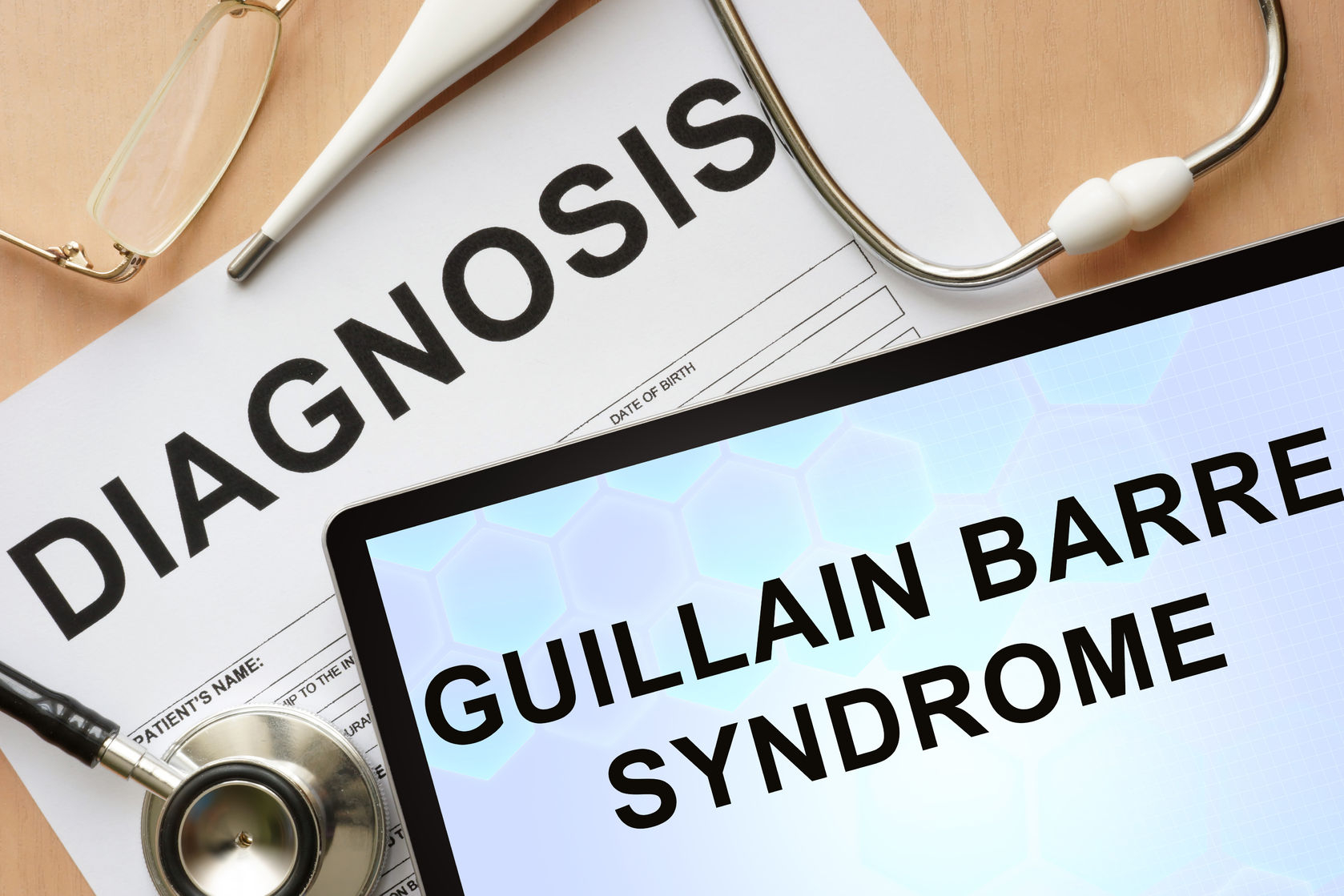
Guillain-Barré Syndrome (GBS) is a rare autoimmune disorder that causes rapid onset muscle weakness as the immune system attacks and weakens the peripheral nervous system and damages the coating around the nerves. Patients often do not recognize the symptoms right away, as they can begin anywhere from one day to several weeks after a vaccination. Often people experience changes in sensation or develop pain, followed by muscle weakness beginning in the feet or legs. The symptoms often spread to the upper body and increase over time. During the most acute phase of the syndrome, the disorder can be life-threatening with about a quarter of the people developing weakness of the breathing muscles and requiring that they be put on a ventilator to breathe. Others experience paralysis or experience changes in the function of the autonomic nervous system, which can lead to dangerous abnormalities in heart rate and blood pressure. The exact cause of GBS is unknown, but many cases have been linked to vaccinations, primarily the flu vaccine. Other cases have been reported following the administration of the tetanus shot, Hepatitis B vaccine, MMR vaccine, HPV vaccine (Gardasil), Chickenpox or Varicella vaccine, and the Meningococcal vaccine (Menactra). There is no known cure for Guillain-Barré Syndrome, and while most people recover over time with therapy and treatment, some may experience long-term effects such as paralysis, weakness, fatigue or numbness of the limbs.
If you or a loved one started experiencing GBS after receiving a vaccine, please contact our Vaccine Injury Attorneys.
